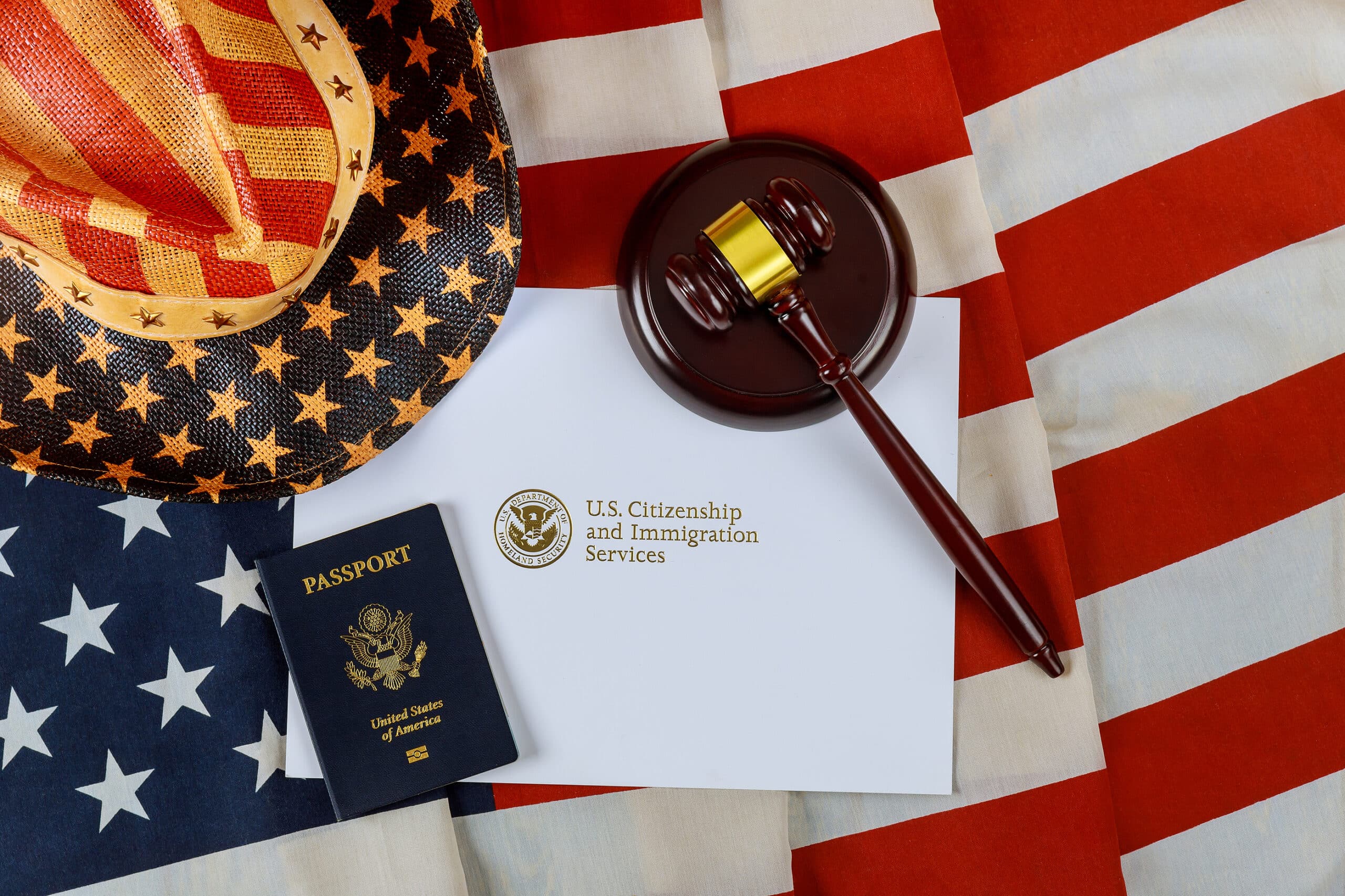Are You Seeking Asylum in the United States of America?
Asylum is a form of legal relief for a foreign national who seeks safety in the United States because they fear persecution based on their race, religion, nationality, political opinion, or membership in a social group. The legal definition of asylum is similar to that of a refugee. However, unlike refugees who are pre-qualified and resettled in the United States, asylum seekers arrive in the US before seeking legal protection. The decision to flee, rather than seek refugee status, is often due to no quotas, or low quotas, for refugees from some countries.
If you win your asylum case, you will be put on the pathway to lawful permanent residence and eventually United States citizenship. However, the process for seeking asylum in the U.S. can be long and complicated, made more so by excessive security checks combined with limited Congressional funding. This contributes to a long backlog of delayed applications.
Foreign-born individuals can apply for asylum through either the affirmative or defensive process. The affirmative asylum process is handled by the United States Citizenship and Immigration Services (USCIS). Asylum seekers usually have less than one year from the date that they enter the country to file for asylum. Applicants seeking affirmative asylum will start the process by submitting Form I-589 to the USCIS. Defensive asylum, on the other hand, refers to when a foreign national faces removal proceedings from the United States. Most defensive asylum cases go directly to an immigration judge, and during such proceedings, an attorney for U.S. Immigration and Customs Enforcement (ICE) argues in favor of deportation and removal. The asylum seeker can seek legal representation to defend their interests. Most people ultimately pay for an attorney or represent themselves.
What is the Asylum Ban?
In May 2023, the United States government adopted an ‘asylum ban’ that bars foreign nationals from asylum protections if they cross through another country on their way to the United States’ southern border. This ban applies unless the foreign national previously applied for asylum elsewhere or managed to make an appointment through the appropriate channels.
Despite initial successful legal challenges, the asylum ban remains in place.
The United States immigration system remains in flux, with court decisions and procedural changes coming at unpredictable times. It is important for asylum seekers and their families to stay informed of their rights and the prospective challenges that await them. Our law firm proudly provide legal services with candor and respect for asylum seekers and other immigrants who are dealing with complex immigration matters in the United States.
Is the Asylum Backlog Due to Get Worse?
The USCIS currently has approximately 1,000,000 or more asylum cases pending. The Inspector General for the Homeland Security Department recently released a report about the spike in delays in the backlog, pointing to evolving migration patterns and the prioritization decisions by those in Congressional and political leadership.
Insufficient staffing and funding are key reasons for the backlog of asylum cases in the United States. Unfortunately, some expect it to get worse before it gets better. Without reasonable congressional intervention, the asylum backlog could double by the end of the decade, according to some reports.
What Factors Contribute to the Delayed Asylum Process?
There are several different factors that could contribute to Delays in the asylum system.
Over a million asylum cases are still pending in the immigration court system, with an average approximate wait time of 1,000 days for a decision. This really depends on the region asylum office. The backlog was made worse by the COVID-19 pandemic. Also, after a refugee migration crisis due to the chaos that followed economic embargoes in the subsequent years.
Changes in immigration policy can also contribute to delayed decisions in asylum cases. Some administrations have been known to implement policies aimed at limiting those filing for asylum. Such policies often create confusion and uncertainty, even within the government agencies responsible for implementing them, which may lead to delays in asylum claims.
Several government agencies, including USCIS, ICE, CBP, the Department of Justice, and the State Department are involved in the asylum process. Delays can occur at any point during the asylum process and sometimes may not be the fault of the applicant, among others. Staff shortages, errors in processing, and other problems have led to significant delays.
What is the Impact of Delays?
Asylum seekers come to the USA fleeing persecution that causes extreme hardships, even the threat of death. They’ve already experienced trauma before they ever begin the asylum process, which itself can be a lengthy wait and full of uncertainty.
While an asylum case is delayed, many asylum seekers are left unable to work, access healthcare, or travel leaving them and their rights in a precarious position.
What Can Be Done to Uphold the Rights of Asylum Seekers?
Many opponents of the asylum ban are urging the United States government to rescind it and rework the immigration system. They believe that the ban weakens refugee protections and sends a counterproductive message to other nations that it’s okay to persecute and restrict civil rights.
Supporters of immigrants are urging the United States government to recommit to its long-held values of providing refuge for foreign nationals fleeing violence and persecution. This, following World War Two and a recognition of the the Holocaust. More Funding and staffing needs to go into the asylum system to help the seemingly countless applicants impacted by a global displacement crisis.
What Can You Do if Your Asylum Case is Affected by the Backlog?
If your asylum case is delayed, what can you do? There are several different legal options that applicants and their families can utilize to hopefully get a faster, not fast, interview date with the asylum office. None of these legal options are guaranteed to work, but they may be worth trying, depending on your circumstances.
What is the Short Notice List?
The short notice list, also known as the short list, is a list of applicants who could be suddenly contacted for an asylum interview if another case is canceled. If you are contacted by phone because you are an applicant on the short notice list, your asylum interview may be conducted in less than a week’s time. There are no specific eligibility requirements for being added to a short-notice list. You must agree to waive the normal notice period of 21 days and agree to appear in person for your interview at the asylum office. Some of these people may find themselves without an attorney to represent them if their attorneys are unavailable.
Can You Request to Expedite Your Asylum Case?
Applicants with certain medical, professional, family, or emergency needs can ask the asylum office to expedite their cases. If you wish to expedite your case, you must contact your local asylum office and ask to expedite. You must explain why your case should be expedited and include some evidence about your asylum case. It seems that the Chicago Asylum Office is less willing to do so.
Is it Worth Reaching Out to a Member of Congress?
Some applicants contact their local congressional representatives to ask for help. This option is rarely effective but may be worth a try. If you have a friend or family member who is a U.S. citizen, it may be more effective if they make the request on your behalf.
What is a Mandamus Lawsuit?
With the help of an immigration attorney, it is possible to file a mandamus lawsuit against the asylum office and demand that the office do its job and process your case. To learn more about this legal option and whether it is right for you, please contact our law firm for legal guidance.
Contact Our Chicago Law Firm to Schedule Your In-Depth Consultation Today
We sympathize with you if you are going through the asylum process and facing lengthy delays. This has become all too common for many asylum seekers attempting to seek safe haven in the United States. However, there may be other legal options worth exploring. With the help of an immigration lawyer from our law firm, it may be possible to expedite your case, find alternatives, and fight for your rights.
To learn more about the legal services we offer and how we may be of assistance to you during this frustrating situation, please contact our Chicago law office to schedule a strategy session today. You can reach us at 312-728-4610.


 312-728-4610
312-728-4610
 Call Us Now
Call Us Now


